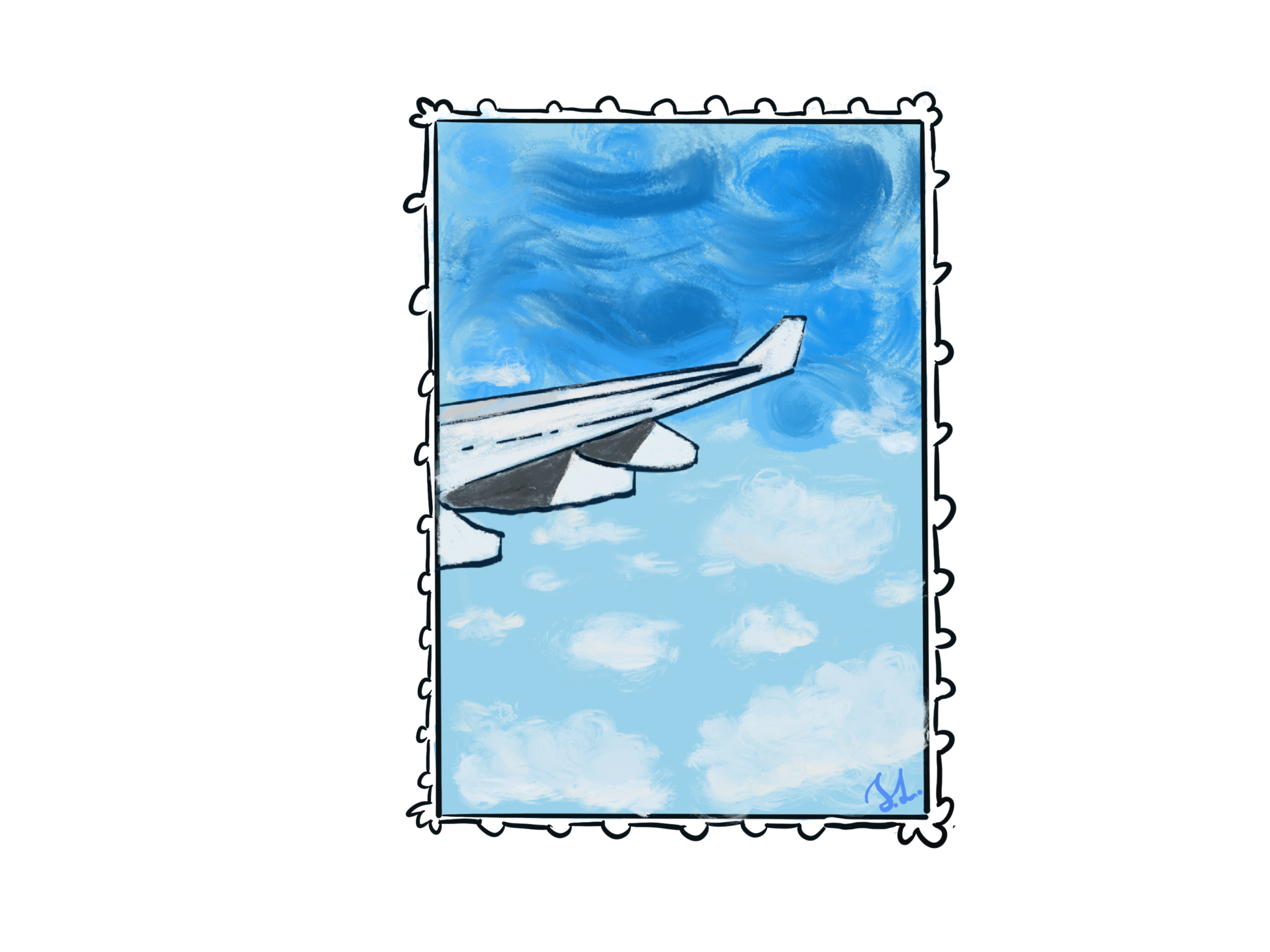
Susanna Liu
“I saw that my life was a vast glowing empty page and I could do anything I wanted.”
Every page of Jack Kerouac’s “On The Road” feels this liberating. If there is anything freer and more reckless than a bunch of youngsters traveling all across the U.S., bumping into new people, and living their best lives on the road, I genuinely want to know about it. “On the Road” deserves credit for much more than its emancipating spirit. A roman a clef novel, its protagonists are the key figures of the Beat generation only with pseudonyms, including Neal Cassady (Dean Moriarty in the book), Allen Ginsberg (Carlo Marx), William S. Burroughs (Old Bull Lee) and the narrator Sal Paradise, based on Kerouac himself. Building on the legacy of the Lost Generation — writers like Hemingway, Fitzgerald, T.S. Eliot — the Beats were mainly a group of Columbia University students who challenged the ideals of American conformism after a gory World War II. Feeling disoriented by the contradiction between strictly organized social, economical and familial norms of the 1950s and the brutal chaotic environment of one world war after another, they became protagonists of Kerouac’s 1957 novel by living a life filled with jazz, poetry and drug use, determined never to get their shit together.
This stuff is prone to get quite dangerous for a 14-year-old child-teen who reads those lines and gets everything wrong. Especially when you’re a TEEN teen one like me, who liked to wear black, stayed up all night, acted depressed and rocked out to heavy metal and ’60s rebellious psychedelic rock bands. I think at that point of my life, my imaginary best friends suddenly shifted from Jim Morrison and Jimi Hendrix to Sal Paradise and Dean Moriarty. Both Sal and Dean were portrayed vidily by Kerouac, who gave the following advice about choosing companionship: “Because the only people for me are the mad ones, the ones who are mad to live, mad to talk, mad to be saved, desirous of everything at the same time, the ones who never yawn or say a commonplace thing, but burn, burn, burn like fabulous yellow roman candles exploding like spiders across the stars and in the middle you see the blue centerlight pop and everybody goes ‘Awww!’” On the bright side of this delusion, I’m pretty sure neither Morrison nor Hendrix were upset about becoming of secondary importance to me.
Kerouac and his fellows profanely pursue the essentials of life in the most iconic way in this beautifully written work: balancing the body and the soul by acting freely and turning towards Eastern philosophies, releasing themselves from the categorical labels to seek their true being and living life to the fullest, only to act as an individual rather than a passive figurine of the collective consciousness. Misunderstanding of this allegorical odyssey of the soul propelled me to pick up a line and manipulate it into an ignorant, indifferent mindset of “Nothing behind me, everything ahead of me, as is ever so on the road,” which I used to justify every impulsive action. As I grew older, I figured Kerouac’s magnum opus had a true(r) interpretation. Doing so thankfully allowed me to self-reflect on the “real me” under the dust of the ridiculous charade of identities. I guess that’s what growing up for me was.
While I was tidying my room a few days ago, I came across my childhood accompaniment and gave it another chance. A different line caught my attention this time: “But no matter, the road is life.” Now, the last thing I want to do here is to turn a line in this enchanting novel into something as shallow as an Instagram caption that celebrates living a life without consequences. Not only would that be super-superficial, but also that’s not the case. Life isn’t a compilation of spontaneous snapshots: It’s a unified road that continues by recognizing the problems through the entire journey. And I prefer understanding the reasons behind my actions and continuing with this awareness, as it’s the ultimate escape from illusion.
As I’m writing these lines miles up in the sky, I’m thinking of everyone and everything that I’m leaving behind in my country, on the road to Kerouac’s America. This one’s really a vast glowing empty page, a new life burgeoning out. I look at the croplands of clouds beneath, feel the warmth of illuminating sunshine through the thick icy plane glass and let a whiff of wisdom fill inside me. Though nostalgia is one of the most powerful forces in the universe, and reminiscences of the distant past are almost always idyllic, I’m trying my best to reject autobiographical amnesia and give my past a fair account. It feels peaceful.
I realize I’m just merely registering the things I thought I didn’t know, so I decide to celebrate Platonic ideals which appeared ridiculous at first glance in our philosophy class readings: All knowledge is recollecting what the soul already knows. Does this also mean knowledge is recollecting from universal wisdom? Can the soul be fused into the cosmic spirit? Well, maybe this was what Kerouac suggested when he wrote, “The road must eventually lead to the whole world.” Or maybe not. You never know. Let’s talk about it again after a few years.
Gamze Kazakoglu | gamze.kazakoglu@yale.edu







